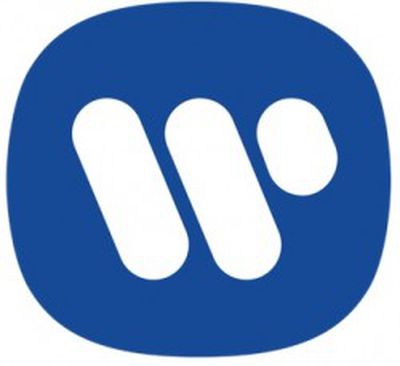Warner Music Remains Optimistic on Streaming Music, as Long as It's Paid
 Amid the explosion in popularity of streaming music services, Warner Music Group continues to support the concept, as long as subscribers are paying for the music to which they are listening, reports Re/code. Warner's CEO Stephen Cooper spoke about the company's growing interest in streaming music during the company's latest earnings conference call which was held last week.
Amid the explosion in popularity of streaming music services, Warner Music Group continues to support the concept, as long as subscribers are paying for the music to which they are listening, reports Re/code. Warner's CEO Stephen Cooper spoke about the company's growing interest in streaming music during the company's latest earnings conference call which was held last week.
Streaming music is increasingly important to Warner, with revenue from online music up 74 percent year over year. In the same period, revenue from downloads plummeted 12 percent, echoing a similar downward trend also seen by Apple's iTunes music download service.
To offset the loss from downloads, Warner currently accepts the freemium model of ad-supported streaming music, but only as a means to convert users to paying subscribers. Paid subscriptions and not freemium plans are the future of the industry, states Cooper.
In our view, right now, enabling meaningful global growth in the number of paying subscribers is the best option for artists, for songwriters, for copyright owners and for the services themselves. Subscription streaming is not only a fantastic offering for music fans, it will propel the long-term health of the music industry. We look forward to continuing to work closely with our partners to turbo-charge the adoption rate for subscription streaming.
Warner's emphasis on paying subscribers may not bode well for Apple's reported plan of slashing monthly costs for its Beats Music service. The Cupertino company is rumored to be pushing music labels to cut current subscription prices in half to $5 per month as it negotiates the terms for its recently acquired Beats Music streaming service. Apple argues that lowering the monthly cost will encourage significantly more users to sign up for the paid service, but labels are obviously considering whether those gains will outweigh the lower per-user income that comes with the cheaper pricing.
Along with a goal of lowering consumer pricing, Apple is also said to be working on an early 2015 refresh for the Beats service, likely integrating it into the iTunes brand. With iTunes Radio and Beats Music, Apple offers both ad-supported and paid streaming service, although the two are not currently integrated. iTunes Radio is currently tied to Apple's traditional download offerings, offering easy access for users to purchase individual tracks they hear on iTunes Radio. Even so, iTunes Radio has seen a tepid reception and international expansion has been extremely slow with the service available only in the United States and Australia.
Popular Stories
Apple will launch its new iPhone 17 series in two months, and the iPhone 17 Pro models are expected to get a new design for the rear casing and the camera area. But more significant changes to the lineup are not expected until next year, when the iPhone 18 models arrive.
If you're thinking of trading in your iPhone for this year's latest, consider the following features rumored to be coming...
In select U.S. states, residents can add their driver's license or state ID to the Wallet app on the iPhone and Apple Watch, providing a convenient and contactless way to display proof of identity or age at select airports and businesses, and in select apps.
Unfortunately, this feature continues to roll out very slowly since it was announced in 2021, with only nine U.S. states, Puerto Rico,...
Apple does not plan to refresh any Macs with updated M5 chips in 2025, according to Bloomberg's Mark Gurman. Updated MacBook Air and MacBook Pro models are now planned for the first half of 2026.
Gurman previously said that Apple would debut the M5 MacBook Pro models in late 2025, but his newest report suggests that Apple is "considering" pushing them back to 2026. Apple is now said to be...
Three out of four iPhone 17 models will feature more RAM than the equivalent iPhone 16 models, according to a new leak that aligns with previous rumors.
The all-new iPhone 17 Air, the iPhone 17 Pro, and the iPhone 17 Pro Max will each be equipped with 12GB of RAM, according to Fixed Focus Digital, an account with more than two million followers on Chinese social media platform Weibo. The...
Since the iPhone X in 2017, all of Apple's highest-end iPhone models have featured either stainless steel or titanium frames, but it has now been rumored that this design decision will be coming to an end with the iPhone 17 Pro models later this year.
In a post on Chinese social media platform Weibo today, the account Instant Digital said that the iPhone 17 Pro models will have an aluminum...
Production of foldable OLED displays for Apple's first foldable iPhone have begun ahead of its expected launch next year, Korea's ETNews reports.
The first foldable iPhone's displays are being produced by Samsung Display, who are establishing a production line dedicated to the upcoming Apple device its A3 factory in Asan, Chungcheongnam-do. The production line will make displays exclusively...
A new Apple TV is expected to be released later this year, and a handful of new features and changes have been rumored for the device.
Below, we recap what to expect from the next Apple TV, according to rumors.
Rumors
Faster Wi-Fi Support
The next Apple TV will be equipped with Apple's own combined Wi-Fi and Bluetooth chip, according to Bloomberg's Mark Gurman. He said the chip supports ...
iPhone 17 Pro and iPhone 17 Pro Max models with displays made by BOE will be sold exclusively in China, according to a new report.
Last week, it emerged that Chinese display manufacturer BOE was aggressively ramping up its OLED production capacity for future iPhone models as part of a plan to recapture a major role in Apple's supply chain.
Now, tech news aggregator Jukan Choi reports...
 Amid the explosion in popularity of streaming music services, Warner Music Group continues to support the concept, as long as subscribers are paying for the music to which they are listening, reports Re/code. Warner's CEO Stephen Cooper spoke about the company's growing interest in streaming music during the company's latest earnings conference call which was held last week.
Amid the explosion in popularity of streaming music services, Warner Music Group continues to support the concept, as long as subscribers are paying for the music to which they are listening, reports Re/code. Warner's CEO Stephen Cooper spoke about the company's growing interest in streaming music during the company's latest earnings conference call which was held last week. 

















